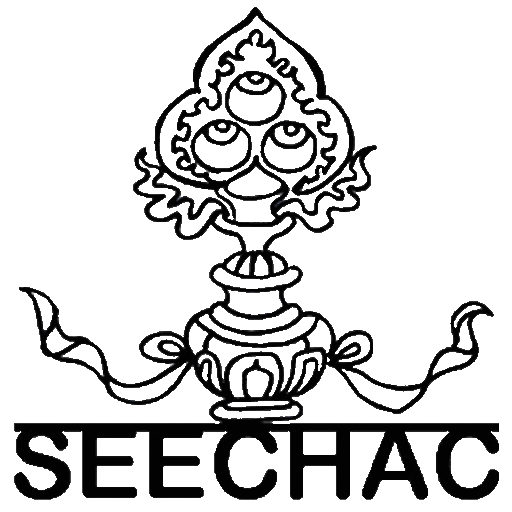19 mars 2014
Charlene Makley,
Maître de conférences au Département d’anthropologie de Reed College, Portland, (Orégon).
Présentera une conférence intitulée :
Othering Spaces, Cementing Persons: Concrete and the Politics of Value in a Rural Tibetan school
52 rue du Cardinal Lemoine 75005 ParisSalle Levi-Strauss, Rez-de-Chaussée – 15h.
ABSTRACT
From the beginning of China’s market reforms, development planners have touted “urbanization” as an ultimate good, as both a promise of utopic modern lifestyles and as a policy goal for the planned integration of rural regions into rationalized, “open” markets. As scholars have recently pointed out, in Tibetan regions, urbanization processes since reforms have taken on particular valences and forms, especially since the launch of the “Great Develop the West” campaign in 2000. Waves of state-led campaigns, scholars argue, attempt to recruit rural Tibetans to participate in market-based urban spaces, lifestyles and aspirations as a way to reconfigure historically cohesive rural communities and to overcome forms of local ethnic autonomy. In this paper, I draw on fieldwork conducted among Tibetans between 2007-2011 in an urbanizing valley of Rebgong in China’s Qinghai province to rethink statist notions of modern urbanization as overcoming a “backward” or “stagnant” rural-urban dichotomy. Instead, I consider urbanism in the valley as a cultural politics of contested “cosmogeographies,” in which types of moral subjects and their appropriate space-time scales are claimed, materialized, and negotiated for increasingly high stakes. In this light, I look at conflicts and dilemmas surrounding a primary school repair project in a proudly prosperous Tibetan village in the mountains above Rebgong’s expanding central town. I contextualize such school- building projects as responses to state-mandated “school consolidation” and “new socialist countryside” policies that worked to re-orient and integrate mountain villages with a sinified and “modern” urbanizing world downriver, even as village leaders sought to defend the autonomy of the village as a Tibetan community historically linked to transregional Buddhist and lineage networks. In this, I focus especially on the mutual constitution of built environments and types of exemplary or abject subjects by examining the ways in which a variety of agents throughout the construction project sought to create, recognize and evaluate the “quality” (Ch. suzhi, Tib. spus tshad) of both materials (especially cement) and people (students, teachers, parents, officials, or patrons) as signs of competing modernities.
Charlene Makley est maître de conférences au Département d’anthropologie de Reed College, Portland, (Orégon). Depuis 1992, elle a fait de nombreuses enquêtes de terrain en Amdo (Qinghai) et travaillé dans les archives. Elle est l’auteure de The Violence of Liberation: Gender and Tibetan Buddhist Revival in Post-Mao China, publié en 2007 par University of California Press. Dans ce travail elle explore les relations de genre, les réformes économiques et le renouveau monastique bouddhique à Labrang, ville tibétaine, dans ce qui est aujourd’hui la province du Gansu en Chine.
Son projet de livre en cours, The Politics of Presence: State-Led Development, Personhood and Power among Tibetans in China, est une ethnographie des relations État-locales à Rebgong (ch. Taer), face au programme du Développement de l’Ouest et durant la répression militaire qui a suivi les troubles de 2008. L’ouvrage met en dialogue les théories anthropologiques sur l’Etat, le développement et la personne avec les récents débats interdisciplianires concernant la nature intrinsèque de la subjectivité humaine, la capacité à agir et les relations avec l’autre non-humain (y compris les divinités). Charlene E. Mackley a pour sujets d’intérêt le développement et la mondialisation, l’anthropologie économique, les études de genre, les études mediatiques, anthropolgie linguistique, les théories sur la religion et le rituel, les théories féministes, la dialectologie du tibétain de l’Amdo et l’histoire tibétaine régionale de l’Amdo.

